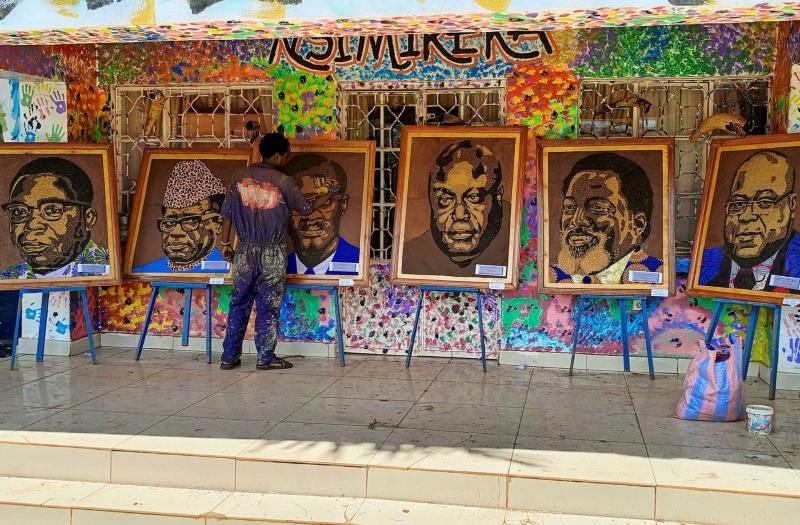Near the beaches of Lake Kivu in the eastern Democratic Republic of the Congo, artist Patrick Cikuru Cirimwami wades knee-deep among a collection of plastic bottles and fills a large sack with as many as he can carry.
Since there is no municipal waste collection service, the area's garbage frequently clogs Lake Kivu, which leads to frequent hydropower plant breakdowns and ensuing outages.
Cikuru Cirimwami, though, has goals that go beyond simply helping with the cleanup. As a sort of protest against what he perceives to be politicians' disregard for environmental preservation, the melted plastic will be used to paint pictures of politicians.
“There have been many conferences in DR Congo, many meetings … but we have not taken measures to protect nature. As a Congolese artist, I can send a message,” said the 26-year-old.
The artist’s paintings of major heavyweights, including independence leader Patrice Lumumba and current president Felix Tshisekedi, were on show at a cultural centre in his hometown of Bukavu last month.
Like many other African countries, Congo has insisted on its right to build its economy by exploiting its abundant natural resources. Some people are upset that oil blocks in the world’s second-largest rainforest are being put up for auction.
It has promised to use cutting-edge drilling techniques and stringent regulations to lessen the possibility of a catastrophic outcome. It also convened meetings ahead of the COP 27 climate summit in November to urge developed countries to keep their promise to poorer ones to provide equitable financing for the global effort to combat climate change.



